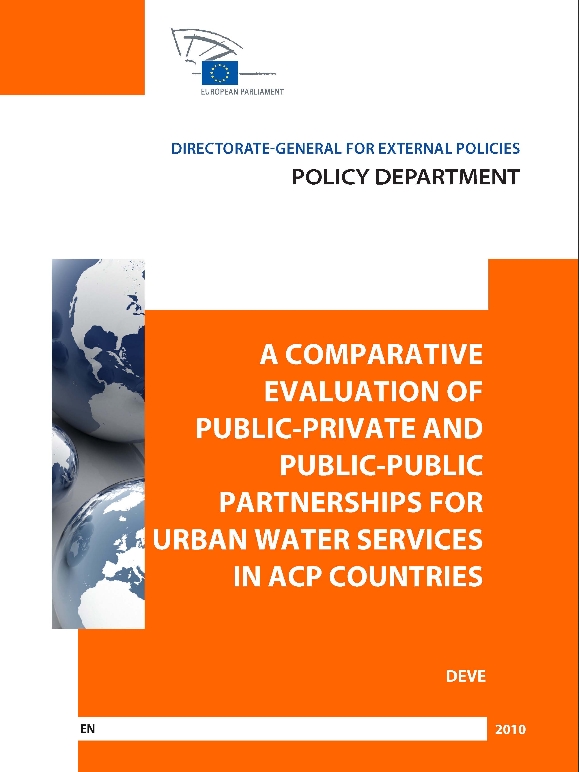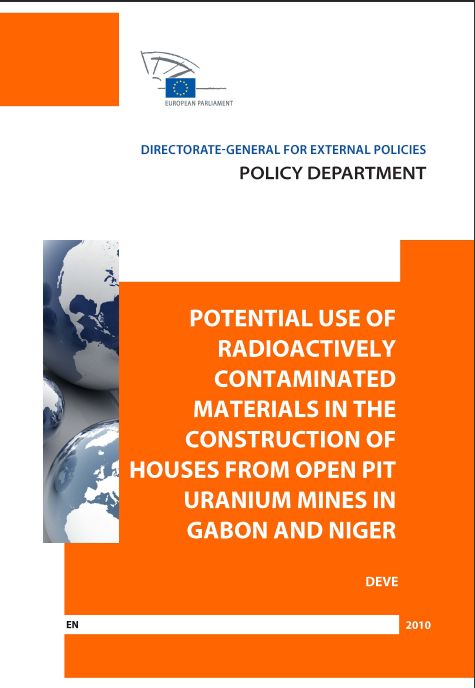EU water policy under the 10th European Development Fund has shifted its focus away from Public Private Partnerships (PPP) in water management in ACP countries towards Public- Public (PuP) Partnerships. PUPs are new partnerships developed between public water operators, communities, trade unions and other key groups, without profit motive and on a basis of equality. The Overseas Development Institute and Ecologic Institute conducted a study for the European Parliament that provided an evaluation of the comparative advantage of different partnership approaches in water policy.
Project Background
For the EC development policy the management of water resources is crucial since it is a prerequisite for development and laid down in the Millennium Development Goals (MDGs). These commit states to halving, by 2015, the proportion of the population without sustainable access to safe drinking water and basic sanitation. Access to water is a basic human need and a fundamental human right. Ill health associated with deficits in water and sanitation undermines productivity and economic growth. For this reason it is important that governments do their best to ensure access for all. In light of this situation, responsible and sustainable water policy is becoming increasingly necessary. Climate change is further increasing the relevance of a well designed and sustainable approach to water policy. The concept of PuPs was developed in the context of the aggressive promotion of PPPs in water service delivery by international financial institutions like the World Bank. PUPs are new partnerships developed between public water operators, communities, trade unions and other key groups, without profit motive and on a basis of equality.
Analysis Approach
The study "A Comparative Evaluation of Public-Private and Public-Public Partnerships for Urban Water Services in ACP Countries" [pdf, 990 KB, English] conducted by the Overseas Development Institute and Ecologic Institute provides an evaluation of different partnership approaches in water policy based upon a literature review of published and unpublished research (econometric analyses, case studies and review papers) and an in-depth examination of PPPs and PuPs in Ghana and South Africa involving review of available documents and telephone interviews with key actors.
Key Conclusions
One central finding is that the bottom-line question is not so much whether the partnership is with a public or private actor, but rather whether
- appropriate institutional arrangements,
- financing mechanisms,
- subsidies and
- policies, including for pro-poor service provision,
are in place. These underlying factors are stronger determinants of the success of partnerships than whether or not a private sector actor is involved. Involving a partner with the right expertise and capacity, which includes not just technical aspects but an understanding of customer care and the particular needs of low-income areas and households, may be most important. This expertise may come from the public or private sector, and public sector providers and local private operators may offer a wealth of experience which has not yet been tapped. For this reason, the EU Water Facility support to PuPs is seen as a very positive development.
The public/private question remains, however, relevant. Involvement of the private sector, particularly in relatively short-term flexible arrangements, can bring improvements in efficiency and management of services, but costs are high. In the ACP context PPPs require strong policies and regulation to ensure benefits reach poor households, so if a PPP is the chosen route governments are likely to require assistance in these areas. PuPs are likely to offer more capacity building and a greater focus on equity, and are less likely to be beset by tensions in design and implementation. They can also turn around municipal/utility performance as seen in Harrismith and Dar es Salaam. Because of greater trust and because no profit is sought by either party, they are cheaper. However, public or community-based partners may struggle with financial sustainability and require external support. The selection of appropriate partners depends on the particular aims of the partnership. PuPs are relatively untested but given the very mixed experience of PPPs and initial success of some PuP experiences, this alternative seems worthy of support. Forthcoming PuPs should be carefully followed for further lesson-learning.
The project was part of the Framework Contract Development Policy.






